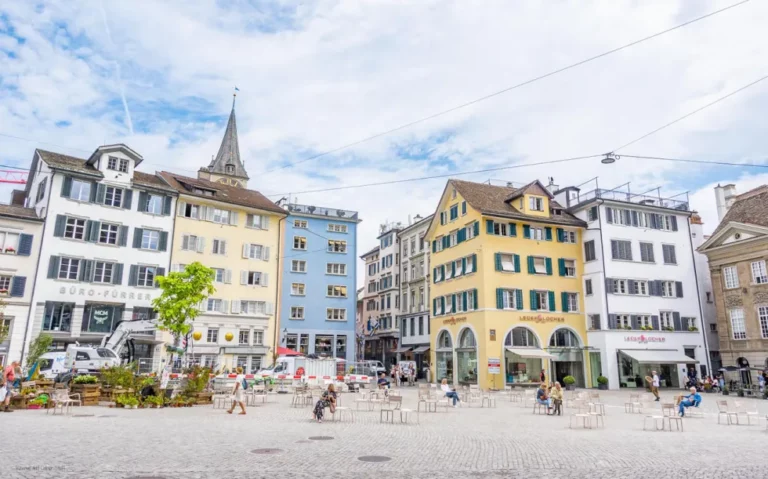The world is filled with bustling cities, each with its own unique charm and character. Amongst them, there lies a city that shines above all with its pristine streets and gleaming buildings: the Cleanest City in the World.
The Importance of Clean Cities
Clean cities contribute to a healthier environment and overall well-being of its citizens. When cities are clean, the air quality improves, reducing the risk of respiratory diseases. Clean streets and neighborhoods also reduce the chances of accidents and promote physical activity, leading to a healthier lifestyle. Moreover, clean cities attract more tourists and businesses, boosting the local economy and creating employment opportunities.
The Role of Government and Policies
Government initiatives and policies play a crucial role in maintaining cleanliness in cities. The implementation of strict regulations and laws related to waste management, pollution control, and urban planning ensures that cities remain clean and sustainable. Governments allocate funds for regular cleaning and maintenance of public spaces, including parks, streets, and drainage systems. They also invest in awareness campaigns to educate citizens about the importance of cleanliness and the proper disposal of waste.
Additionally, governments collaborate with local authorities and other stakeholders to create partnerships that promote cleanliness. Public-private partnerships are increasingly being established to tackle cleanliness issues effectively. Through these partnerships, the government can leverage the expertise and resources of private organizations to improve waste management facilities, develop recycling programs, and maintain cleanliness standards citywide.
Furthermore, government policies encourage the adoption of eco-friendly practices such as renewable energy sources, sustainable transportation systems, and green infrastructure. By promoting these practices, governments can reduce pollution levels and minimize the carbon footprint of cities, contributing to a cleaner and healthier environment for its citizens.
In conclusion, the active involvement of governments and the implementation of effective policies are vital in ensuring the cleanliness of cities. Through their initiatives, governments can create a conducive environment for citizens to thrive and enjoy a high quality of life. Clean cities not only promote physical and mental well-being but also foster economic growth and attract investments. Therefore, it is essential for governments to prioritize cleanliness and work towards sustainable urban development.
Top Cleanest Cities in the World
Explore the cleanest cities around the globe and learn about their impressive cleanliness rankings.
Zurich, Switzerland
Zurich, the largest city in Switzerland, is widely recognized for its exceptional cleanliness. The city’s streets, parks, and public spaces are meticulously maintained, ensuring a pristine environment for both residents and visitors. Zurich’s waste management system is highly efficient, with a strong emphasis on recycling and waste reduction. This sustainable approach contributes to the city’s overall cleanliness and impressive environmental performance.
Innovations in Clean City Practices
Discover the innovative technologies and practices employed by cities to achieve and maintain cleanliness.
Smart Waste Management Systems
Cities around the world, including several in the United States, are embracing the implementation of smart waste management systems as part of their efforts to optimize waste collection and reduce environmental impact. These innovative systems incorporate advanced technology and data analysis to improve efficiency and effectiveness in waste management.
Using specialized sensors, these systems can monitor the fill levels of waste bins and alert waste collection teams when bins are reaching capacity. This real-time data allows for more precise scheduling of waste collection routes, resulting in reduced fuel consumption and fewer emissions. Additionally, the information gathered from these smart systems can help cities identify patterns and trends in waste generation, enabling them to develop targeted strategies for waste reduction and recycling.
Furthermore, some cities have adopted the use of smart bins that can automatically compact the waste, increasing the bin’s capacity and reducing the frequency of collection. These bins also come equipped with sensors that can detect and sort different types of waste, such as recyclables or organic materials, allowing for more efficient sorting and recycling processes.
Incorporating smart waste management systems not only improves the overall cleanliness of cities but also contributes to a more sustainable and environmentally friendly urban environment. By harnessing the power of technology and data, cities can optimize waste collection practices, reduce landfill waste, and promote recycling, ultimately working towards a cleaner and greener future.
In conclusion, living in a clean and pristine city is not only beneficial for our health but also for our overall well-being. The top 10 cleanest cities in the world showcased in this article are perfect examples of how urban areas can prioritize cleanliness and sustainability. From efficient waste management systems to strict environmental regulations, these cities have set the bar high for others to follow. So, whether you’re planning a visit or considering a move, these sparkling destinations can offer you an unparalleled quality of life. Let’s strive to create more cities like these, where cleanliness is not just a luxury but a way of life. Here’s to a cleaner, healthier, and more sustainable future!
